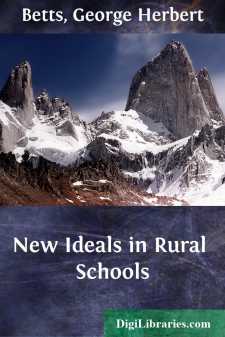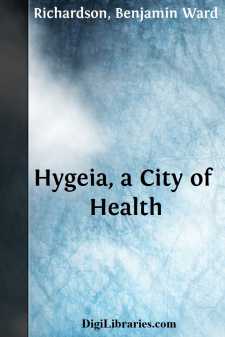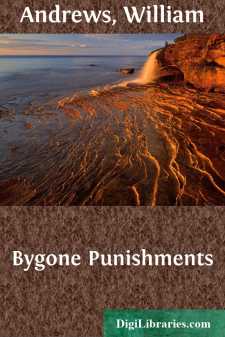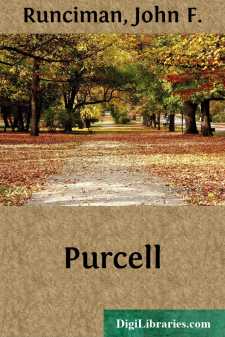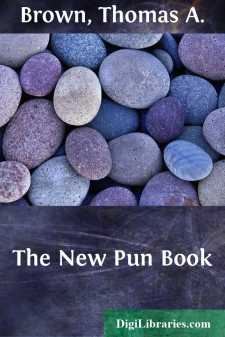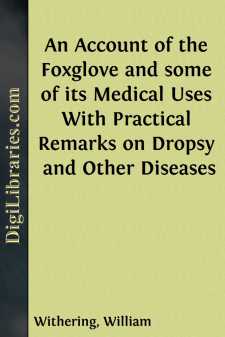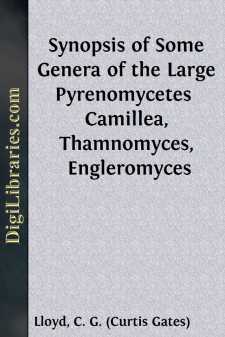Non-Classifiable
- Non-Classifiable 1768
Non-Classifiable Books
Sort by:
EDITOR'S INTRODUCTION In presenting a second monograph on the rural school problem in this series we register our sense of the importance of rural education. Too long have the rural schools suffered from neglect. Both the local communities and the State have overlooked the needs of the rural school system. At the present hour there is an earnest awakening of interest in rural life and its...
more...
by:
Jean Toomer
INTRODUCTION I was not more than ten years old when I first heard mention of the Quakers. The grown-ups of my family were talking among themselves, speaking of an uncle of mine who lived in Philadelphia and operated a pharmacy near the university. I had never seen this uncle and was curious about him, so my ears were open. Presently a reference to the Quakers caught my attention. I wanted to know who...
more...
HYGEIA, A CITY OF HEALTH We meet in this Assembly, a voluntary Parliament of men and women, to study together and to exchange knowledge and thought on works of every-day life and usefulness. Our object, to make the present existence better and happier; to inquire, in this particular section of our Congress:—What are the conditions which lead to the pain and penalty of disease; what the means for the...
more...
by:
Alleyne Ireland
CHAPTER I IN A CASTING NET A long illness, a longer convalescence, a positive injunction from my doctor to leave friends and business associates and to seek some spot where a comfortable bed and good food could be had in convenient proximity to varied but mild forms of amusement—and I found myself in the autumn of the year 1910 free and alone in the delightful city of Hamburg. All my plans had gone...
more...
by:
William Andrews
Hanging. he usual mode of capital punishment in England for many centuries has been, and still is, hanging. Other means of execution have been exercised, but none have been so general as death at the hands of the hangman. In the Middle Ages every town, abbey, and nearly all the more important manorial lords had the right of hanging, and the gallows was to be seen almost everywhere. Representatives of...
more...
by:
John F. Runciman
CHAPTER I We once had a glorious school of composers. It departed, with no sunset splendour on it, nor even the comfortable ripe tints of autumn. The sun of the young morning shone on its close; the dews of dawn gleam for ever on the last music; the freshness and purity of the air of early morning linger about it. It closed with Purcell, and it is no hyperbole to say the note that distinguishes...
more...
by:
Thomas A. Brown
The New Pun Book "He's a professional grafter." "Who?" "The nurseryman." "You know Fatty Schultz the butcher. What do you suppose he weighs?" "I don't know, what does he weigh?" "Meat." "I saw a sign in a hardware store to-day 'Cast iron sinks.' As though everyone wasn't wise to that." "How are you to-day?"...
more...
After being frequently urged to write upon this subject, and as often declining to do it, from apprehension of my own inability, I am at length compelled to take up the pen, however unqualified I may still feel myself for the task. The use of the Foxglove is getting abroad, and it is better the world should derive some instruction, however imperfect, from my experience, than that the lives of men...
more...
THE GENUS CAMILLEA. The receipt of a nice specimen of Camillea Cyclops from Rev. Torrend, Brazil, has induced us to work over the similar species in our collection. On our last visit to Europe we photographed the various specimens we found in the museums, but did not study them as to structure. However, they make such characteristic photographs that we believe the known species can be determined from...
more...
INTRODUCTION. Fourteen years ago the author came to Quaker Hill as a resident, and has spent at least a part of each of the intervening years in interested study of the locality. For ten of those years the fascination of the social life peculiar to the place was upon him. Yet all the time, and increasingly of late, the disillusionment which affects every resident in communities of this sort was...
more...


